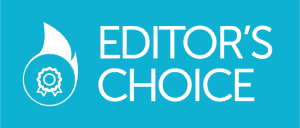At some point in your life, you might have taken a melatonin supplement from a bottle to get to sleep, or to get over jet-lag. Your body naturally produces melatonin as well. The hormone comes from the pineal gland in your brain, and helps regulate your sleep cycle.
A recent pilot study shows that melatonin’s benefits don’t stop there. It also might help lower oxidative stress and inflammation for patients with a type Charcot-Marie-Tooth disease.
Charcot-Marie-Tooth (CMT) disease is a rare disease, although compared to other inherited neurological conditions, relative common. It affects the nerves outside of the spinal cord and brain. These nerves pass sensory messages from our body to our brain, or action messages from our brain to our body. CMT can be caused by mutations in several different genes which affect sensory and motor processing. The patients have different types of CMT depending on which gene is affected.
CMT usually starts expressing in a patient’s teenage years or young adulthood. Symptoms include tripping, or overall having a difficult time walking, muscle weakness in feet, legs, and hands, impaired motor skills. Patients may also see altered foot structure, like high arches and hammertoes. There are currently leg braces, thumb splints, occupational therapy, pain killers, and other strategies to treat CMT symptoms, but no cure. To learn more about this rare disease, click here.
The majority of CMT cases (70%) are CMT1A. That sort results from a mutation in the PMP22 which disrupts myelin production. Myelin is the insulated covering that protects nerves and fosters communication. When it doesn’t function, nerves aren’t able to send messages as quickly as they should.
CMT1A is also characterized by oxidative stress and chronic inflammation. Oxidative stress happens when a body isn’t able to adequately counteract the free radicals it produces. Unchallenged, the free radicals harm cells in the body.
Researchers are looking into therapies that could reduce both the oxidative stress and the inflammation. If they can successfully do that, they could slow the disease’s effects down.
Dr. Darío Acuña-Castroviejo, a professor of physiology at University of Granada and his team got to work on testing out a chemical that could potentially accomplish both of these things.
The researchers knew that melatonin is an anti-inflammatory antioxidant, as well as a painkiller. Other antioxidants, such as vitamin C, have been disappointing in this regard. However, vitamin C couldn’t act at the mitochondrial level. Melatonin is different, since it can access all components of the cell.
The team studied three children with CMT1A, ages 8-10. They matched them with healthy controls, who were the same ages and sexes as the patients. The researchers measured the children’s levels of the enzyme which is associated with oxidative stress. They were clearly elevated compared to their healthy counterpart, which demonstrated they suffered from the oxidative imbalance that comes with CMT1A.
The participants received 60 mg of melatonin to take each evening, and 10 mg for the morning. The researchers used the same doses that they had read about it a previous study, which had shown how melatonin can improve Duchenne muscular dystrophy. They followed this regimen for six months.
Three months in, the effects were already noticeable. The oxidative stress levels started dropping. They continued reducing, until, at six months, they were similar to the levels shown in the healthy group.
These results are promising; the team believes melatonin should be seriously considered as a therapy for patients with CMT1A. However, this study was constrained by its size. The researchers noted that its difficult to find large numbers of patients, and there isn’t as much clinical data to examine. They would like a new study, with more patients, and the ability to collect more data.








